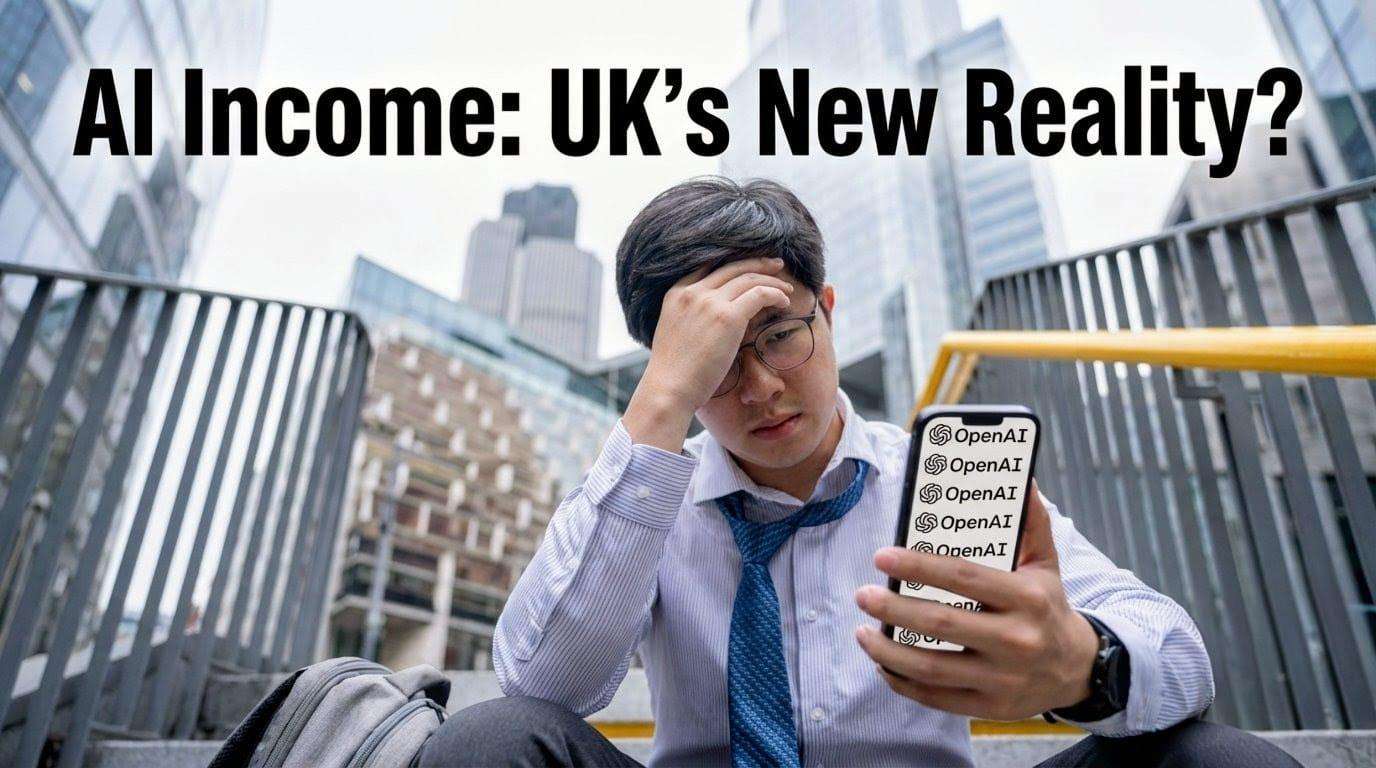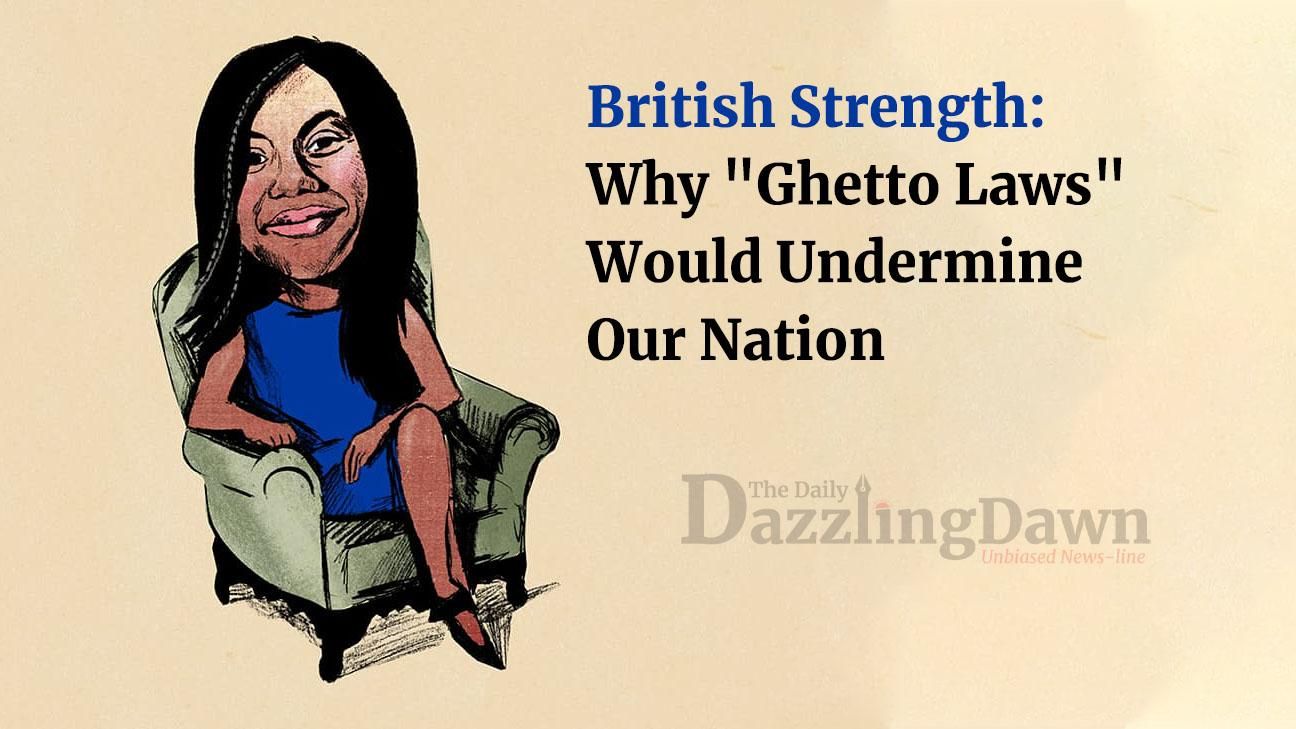Recent statements by Kemi Badenoch, suggesting the UK explore Danish-style "ghetto laws" to address "non-Western" majority neighbourhoods, have ignited significant apprehension across Britain's diverse immigrant communities. While framed as a path towards "assimilation," such proposals risk profound and negative impacts, fundamentally undermining the very communities they purport to integrate and, in turn, weakening the fabric of a prosperous and inclusive Britain.
The controversial Danish "ghetto laws," currently facing a challenge at the European Court of Justice for their discriminatory nature, permit actions like the demolition of social housing, eviction of residents, and restrictions on new residents in areas designated "parallel societies." These designations are based on criteria that include a majority "non-Western" population, a classification which explicitly excludes individuals from countries like the US, Canada, and Australia, while including those from non-EU Balkan and Eastern European nations. This highlights a clear ethno-racial bias at the heart of the policy.
The Real Impact on Immigrant Communities
Applying such laws in the UK would have devastating consequences, particularly for the vibrant South Asian and other non-Western communities that have contributed so much to British life.
Firstly, there's the looming threat of forced displacement and housing instability. These policies could tear apart established communities, disrupting the social networks and support systems that families have painstakingly built over generations. For many, including former refugees, the experience of forced eviction could be profoundly traumatising, hindering their ability to rebuild secure lives.
Secondly, these measures inherently lead to stigmatization and discrimination. Labeling areas as "non-Western majority" and targeting them for "break-up" creates a narrative that certain communities are inherently problematic or unintegrated. This fosters an "us versus them" mentality, which can lead to increased prejudice and discrimination in housing, employment, and everyday social interactions, making genuine integration significantly harder. Advocate General Tamara Ćapeta, in her opinion on the Danish law, highlighted how the distinction between “Western” and “non-Western” is an inherent ethnic construct, leading to stereotyping and stigmatization.
Furthermore, such policies risk eroding social cohesion. Rather than promoting unity, they can breed resentment and suspicion by targeting specific ethnic groups. True integration thrives on mutual understanding and respect, not on policies that force conformity or dismantle communities. Research on the Danish laws has shown they have had negative impacts on residents' income and no clear effect on criminal behaviour, indicating that such approaches are ineffective and detrimental.
Finally, the disruption and stigma would hinder social mobility. Children and families could lose access to established schools, local support services, and employment opportunities. This can inadvertently trap communities in cycles of disadvantage instead of empowering them to thrive and contribute. Such laws also raise significant human rights concerns, as evidenced by the ongoing challenge at the European Court of Justice regarding discrimination based on ethnic origin and the right to a home. Embracing such policies would be a considerable step backward for a nation that prides itself on upholding human rights.
Immigrant Contributions: A Foundation of British Prosperity
Instead of divisive measures, the UK should recognize and actively support the immense contributions of its immigrant communities. Legal and regular migration is a powerful engine of economic growth, a vital support for public services, and a source of invaluable cultural enrichment.
Immigrants are a powerhouse for the economy, contributing significantly more in taxes than they consume in public services. For example, in 2020, immigrants paid approximately £20 billion in taxes, substantially higher than the costs of public services they used. The Office for National Statistics (ONS) reports that migrants contribute roughly £83 billion to the UK's economic output annually. They often arrive at working age, bolstering the tax base, and migrant entrepreneurs are a driving force, with reports suggesting they are approximately 7% more likely to start businesses than UK-born individuals.
The National Health Service (NHS), a cornerstone of British society, is profoundly reliant on its diverse workforce. Over 17% (264,815) of all NHS staff in England are from overseas. For nurses, this figure rises to nearly 27% (99,856 of 372,605), and doctors from India are the highest country of birth for NHS doctors after the UK. Without this diverse talent pool, the NHS would face unprecedented challenges.
In education, immigrant communities enrich classrooms with diverse perspectives. International students are a massive economic asset; a joint study for the 2021/22 academic year found they added an estimated £41.9 billion to the UK economy, representing a net benefit of £37.4 billion.
The hospitality industry also relies heavily on its diverse workforce. In 2020, migrants made up 28% of the sector's workforce, filling crucial roles from chefs to housekeepers that ensure the smooth operation of businesses contributing significantly to tourism and local economies.
Beyond these tangible contributions, immigrant communities enrich Britain's social and cultural fabric. They bring diverse traditions, cuisines, languages, and perspectives, contributing to a vibrant multicultural society. True integration stems from a sense of belonging and the empowerment to contribute unique strengths, not from pressure to abandon heritage.
The UK's historical success is interwoven with its openness to people from all walks of life. Focusing on inclusive policies that support legal and regular migration, foster genuine integration through mutual understanding, and celebrate diversity will undoubtedly lead to a stronger, more resilient, and more prosperous Britain for all. Policies that mimic discriminatory "ghetto laws" would not only be a moral failing but also a significant self-inflicted wound on the nation's economic and social well-being.








.svg)
